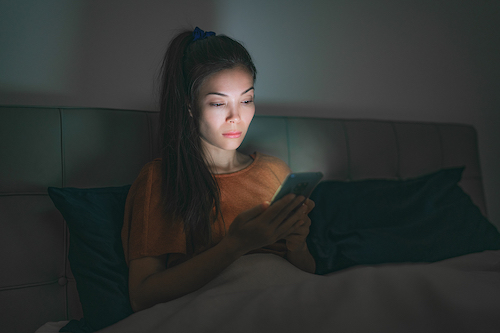 When it comes to overall wellbeing, how a person uses social media could have a significant impact.
When it comes to overall wellbeing, how a person uses social media could have a significant impact.
In a study from The University of British Columbia, Derrick Wirtz, an associate professor of teaching in psychology examined the use of three popular social media platforms: Facebook, Twitter and Instagram, to see how the use of the platforms impacted the overall wellbeing of a person.
“We found that use of Facebook, Instagram, or Twitter had one thing in common: the more that participants in our study used any of them, the more negative they said they felt afterward. We followed a sample of university students over 10 days, allowing us to see how their use of social media at one time point affected how they felt subsequently, and could see this unfold in the students' daily lives,” he told Theravive.
“Social media have become a part of everyday life for many, yet we know relatively little about how use of social media impacts people’s well-being. This study is based on an undergraduate thesis project by Amanda Tucker, my co-author, and we were very interested in how the use of these sites was affecting people’s happiness. Many people don’t use just one social network site — raising the question of how use of multiple sites together impacts us. Very few studies have asked these questions. In this study, we looked at three sites together and on their own, to try and gain understanding into commonalities and differences in how they affect our moods,” he said.
Even in the days before COVID-19, Wirtz says use of social media has transformed the way humans interact with each other. In person or face to face contact is often now matched or exceeded by use of social media, where online interactions allow people to connect without being physically together. Although social media can be a good thing and connect people who might not otherwise be able to see each other, Wirtz says users can also have negative feelings after using social media platforms.
That may be due to social comparison from social media use. Those who participated in Wirtz’s study said that the more frequently they compared themselves to others on social media, the lower their level of happiness.
“Social comparison is something that people should try to avoid, because it makes us less happy. People tend to post favourable or positive things about themselves on social network sites. Inevitably, then, we are stuck comparing ourselves to others at their best moments, and that’s difficult for anyone to live up to,” Wirtz told Theravive.
“Psychologists call these upward social comparisons — we are comparing ourselves to others who at least outwardly appear better off. The effect that such comparisons have on people is that they feel less happy with their own lives. It is probably not use of social media per se that undermines well-being, rather that use of social media often lends itself to comparison, and that makes us feel less happy.”
Aimless scrolling can also be a problem. Wirtz says that viewing posts or images from other people on social media whilst not actually interacting with them encourages comparison, but lacks the benefits that typically result from social contact, that allows for reciprocal interaction. The more study participants used Facebook, Twitter and Instagram, the less happy they felt afterwards.
During the COVID-19 pandemic, many have turned to social media to combat feelings of isolation and loneliness. Yet Wirtz’s study, which was undertaken before the global pandemic, found that although many turn to social media when lonely, doing so may actually increase feelings of loneliness.
“We found a bit of a paradox in our study. People tended to use social media more when they were lonely. They were using social media to socially connect when they were lonely. The paradox was that it didn’t appear to work. Using social media only increased people’s loneliness. There are a few possible reasons for this—for example, if we turn to social media with the intention of catching up with friends and acquaintances, but we end up socially comparing, we might feel more lonely rather than less. As well, we might miss people even more after seeing their pictures and updates,” Wirtz said.
He says social media can be beneficial for wellbeing, if done in the right way.
“When using social network sites, try to use them in ways that are active and socially connecting. For example, scrolling through others’ pictures and updates is passive and lends itself to social comparison. On the other hand, actively communicating with someone, such as sending them a message to ask how they are doing or setting up a time to connect one-on-one, can lead to improved well-being.”
Elizabeth Pratt is a medical journalist and producer. Her work has appeared on Healthline, The Huffington Post, Fox News, The Australian Broadcasting Corporation, The Sydney Morning Herald, News.com.au, Escape, The Cusp and Skyscanner. You can read more of her articles here. Or learn more about Elizabeth and contact her via her LinkedIn and Twitter profiles.